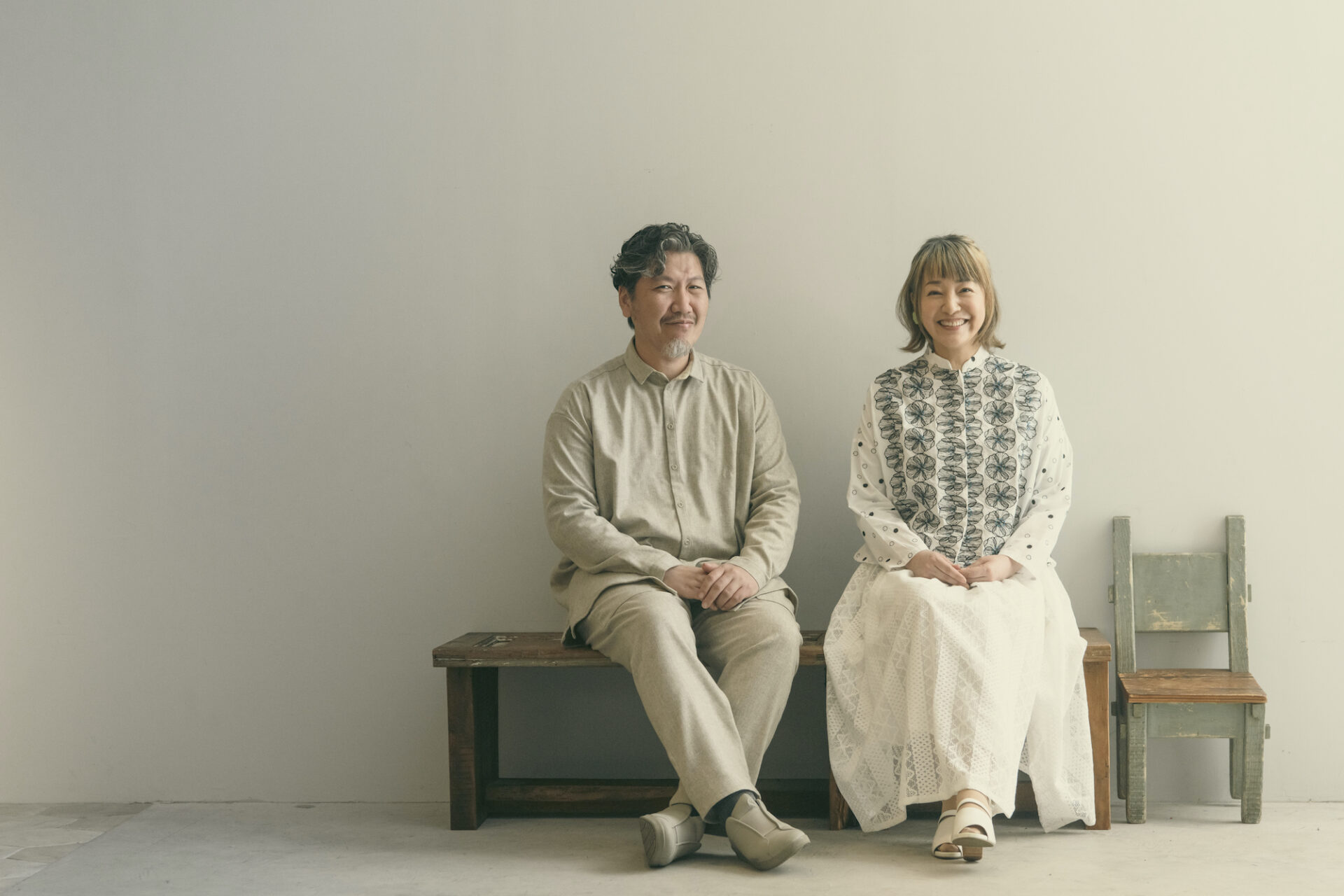
2024-04-20
Vol.5
TV personality and Artist
Chiharu
-
From Silence to Speaking Up
-
Courage to Step In and Deep Human Relationships
-
Parenting and Delicacy
-
The Culture of “Herding” Withers Big Trees
-
The End of “Whitened” Society
With carefully selected vintage accessories and interior goods on display in a renovated warehouse, CHUM APARTMENT gives the impression of a comfortable hidden cafe or an inspiring space like a workshop where spirited artists gather. Today’s guest, Chiharu, ran the space for nearly 20 years while working as a TV personality. The relationship between Chiharu and Shigeta began as one between a TV personality and a client using her for the advertisement, and through the period in which both experienced management, it continued even after Chiharu retired from managing CHUM APARTMENT. They can give away true feelings without reserve as they have shared joys and sorrows with each other. With a deep trust relationship, the two discussed how to deal with the new norm in the Reiwa era surrounding the words “harassment” and “delicacy,” offering encouragement to the next generation.
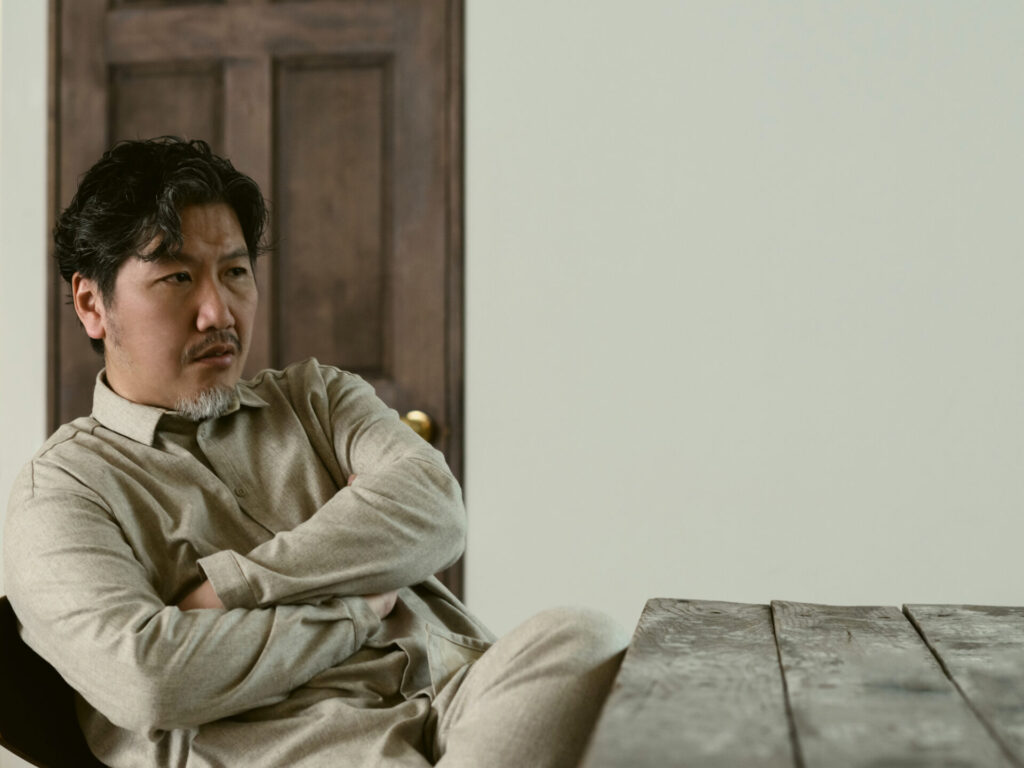
“I think one of the criteria for judging whether a particular remark is considered ’harassment’ is not ‘what is said’ but ‘who said it.’ In that sense, I think it is the speaker’s personality that matters.” (Shigeta)
——Today’s guest is Ms.Chiharu, who is active as a TV personality and an artist. First of all, could you tell us the relationship between the two?
Masakazu Shigeta: Our relationship started when we planned to use a TV personality for advertising “nesno,” the first cosmetics brand I produced, and we appointed Ms. Chiharu. I think we first met during a photo shoot at CHUM APARTMENT, located in Meguro at the time. Since she was the owner, I suggested it should be the best location for the shooting.
Chiharu: I was 40 years old when I got the offer, and in my private life, it was the time when I ended the relationship with my long-term partner. I was so surprised to know a cosmetic brand would use me for advertising at such a time, but at the same time, I was so delighted. When we make big decisions in life, they can sometimes backfire. Like, people that you thought were on your side suddenly turn into your enemy. Mr. Shigeta was one of the few people who was always on my side in such a time. We have known each other for over ten years, and I always talk with him when I am in trouble, like, “Shigecchi, could you do me a favor…?” I can ask him what I can’t ask others; that is our relationship, I guess.
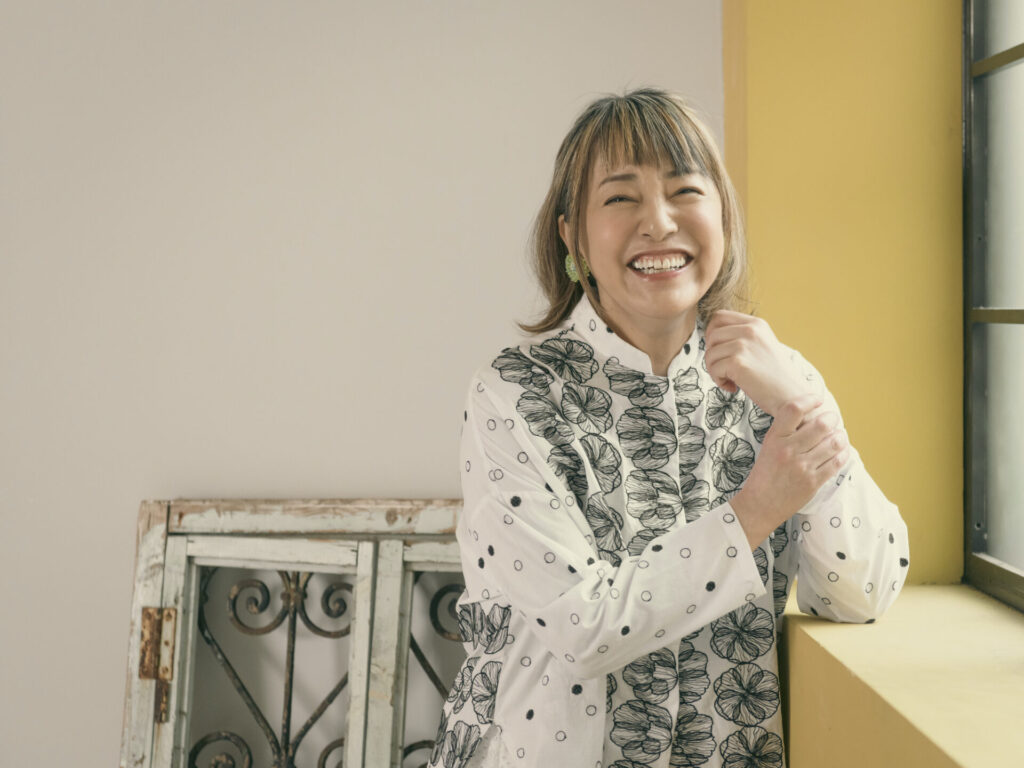
——Have you heard about today’s topic?
Chiharu: Yes. We had dinner together the other day for the first time in a while, and just when the word “delicacy (thoughtfulness, kindness)” became the topic, Mr. Shigeta said, “Wait! Let’s talk about it at another time!” and that brings us here today.
——We got a link to a video clip of an interview with Mr. Tsuyoshi Nagabuchi, which Mr. Shigeta sent and asked us to watch beforehand. I heard it was Ms. Chiharu’s suggestion.
Chiharu: It is the dialogue between Mr. Tsuyoshi Nagabuchi and Mr. Yusuke Narita at “ReHacQ,” right? Wasn’t it interesting?
Shigeta: It was very interesting.
Chiharu: Nowadays, people with strong characters and behaviors are often criticized because their actions could be considered “power harassment.” I was surprised Mr. Nagabuchi appeared in the clip because the media criticized him a lot at the time.
Shigeta: For me, the clip’s contents are synchronized with the TV drama series scripted by Mr. Kankuro Kudo, “Futekisetsu ni mo Hodo ga Aru! (There is a Limit to Inappropriateness!)”. I felt people finally started talking about the problem surrounding the word “power harassment.” Things don’t go further with your mouth shut, after all.

Chiharu: Since we both have experienced managers, we often discussed organization building and human resources development. I am the type of person who, if necessary, uses strong words to tell off the staff members, so I often asked Mr. Shigeta for advice to deal with the conflicts caused by my actions.
Shigeta: You know, your behavior itself is “power harassment.” (laughs)
Chiharu: But I have tried to restrain myself recently. At the same time, however, I feel sorry for people who grow up without being told off by anyone. Rather than the pain of not being able to say what I want to say, I feel sadness more because I feel my love for others is getting weaker.
Shigeta: Since we have worked together to solve the issues whenever
you asked, I have often encountered scenes where you directly tell others what you think. I could not tell things as directly as you; rather, I have always thought that not telling things directly is the right way.
But when you had a problem with the band members, I told her to look the other way for a while, but she decided to bring them together anyway. When they gathered, she told them directly what she thought, and the uncomfortable atmosphere disappeared immediately. I’m sure
everybody was depressed on their way to the place, but her words turned their gloomy faces into fresh ones. Having seen it, I learned that I have to say things directly if necessary, and the experience has greatly influenced how I communicate with staff today.
Chiharu: I’m glad to hear that.
Shigeta: This is just my opinion, but for me, one of the criteria for judging whether a particular remark is considered “harassment” is not “what is said” but “who said it.” In that sense, I think it is not vocabulary or communication skills but the speaker’s personality that matters.
I have partly taken Ms. Chiharu’s behavior as a negative role model, but on the other hand, I know she shows a weak side to others, such as when she is wholly drunk and a mess. Sometimes, you tell things directly to the people around you; sometimes, like when you are drunk, they treat you like trash, saying, “You stupid drunk.”
I think having a relationship where you can share direct opinions is very important because it shows that communication is working interactively. As I want to build such relationships with the staff members, I always allow them to make fun of me at the end of the drinking session.
Chiharu: If the staff says I am a fool, I guess I win because I feel I could get inside the person.
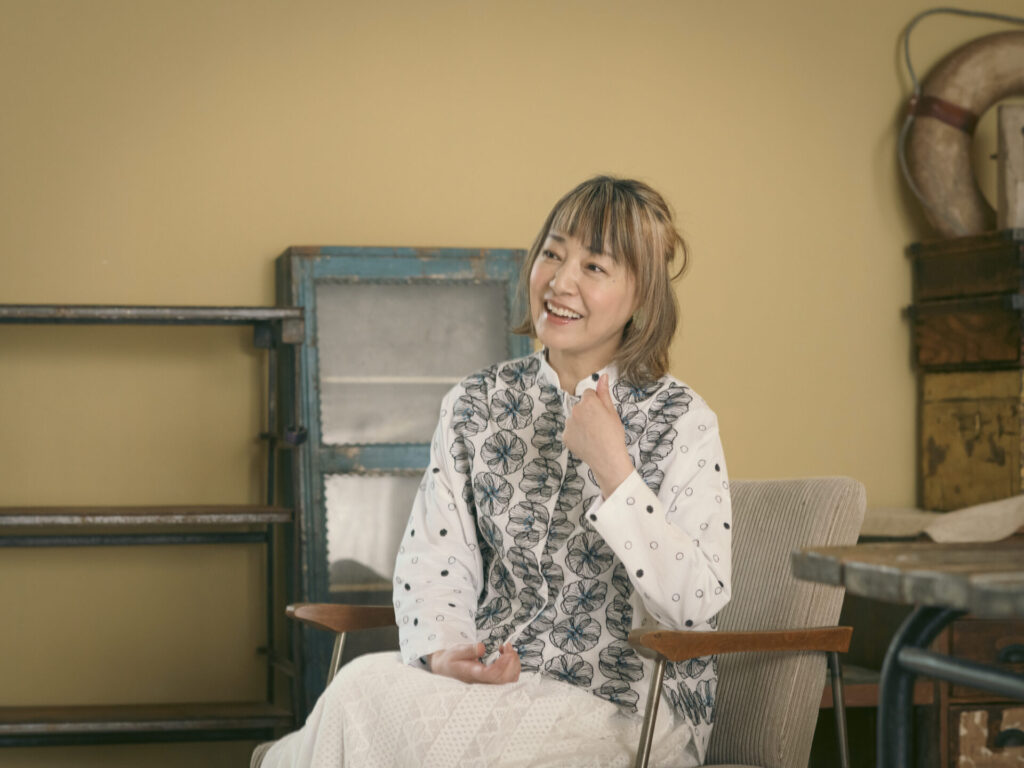
“True friendship will be born only after one gets over the bad impression of the other side.” (Chiharu)
Chiharu: What I remember very well about Mr. Shigeta is when we went out for a drink at Sangenjaya. I formed a music band with my childhood friends then, and I planned to drag in the “sponsor” for the party and invited him. We had a lot of drinks, and when the time to pay the bill came, Mr. Shigeta would split the bill. So I said, “Boss, you are supposed to pay for this,” which made you look very unhappy. You were angry at that time, weren’t you?
Shigeta: It wasn’t that I didn’t want to pay. Since I became a manager early on, I had rather many opportunities to treat somebody at dinner parties. But that night, I felt I couldn’t become friends with them if I paid, so I thought it would be better to split the bill. But Chiharu told me, “You’re the one who’s supposed to pay today, OK?” so I thought life was difficult.
Chiharu: This is probably the feeling particular to our generation, but I feel that true friendship will be born only after one gets over the bad impression of the other side. Whenever I hit it off with somebody from the beginning and the relationship goes smoothly, I start to feel the need to make the relationship stumble with my wicked side. Young people nowadays might feel that this sort of relationship is troublesome. Still, giving them a strong expression first is more straightforward than feeling the relationship troublesome later.
Shigeta: I agree with your point that we can create a deep relationship only after experiencing harsh feelings.
Chiharu: But I didn’t know that you felt that tough then. (laughs)
——But despite such experiences, you have kept the relationship with her. Is the reason mainly due to her magnetic personality?
Shigeta: Her personality is certainly a big part of it, but more than that, I thought I wanted to go beyond something. It was like I could get something once I crossed that line. I have much easier relationships elsewhere now, but I guess I was expecting something I could get only through tough experiences.
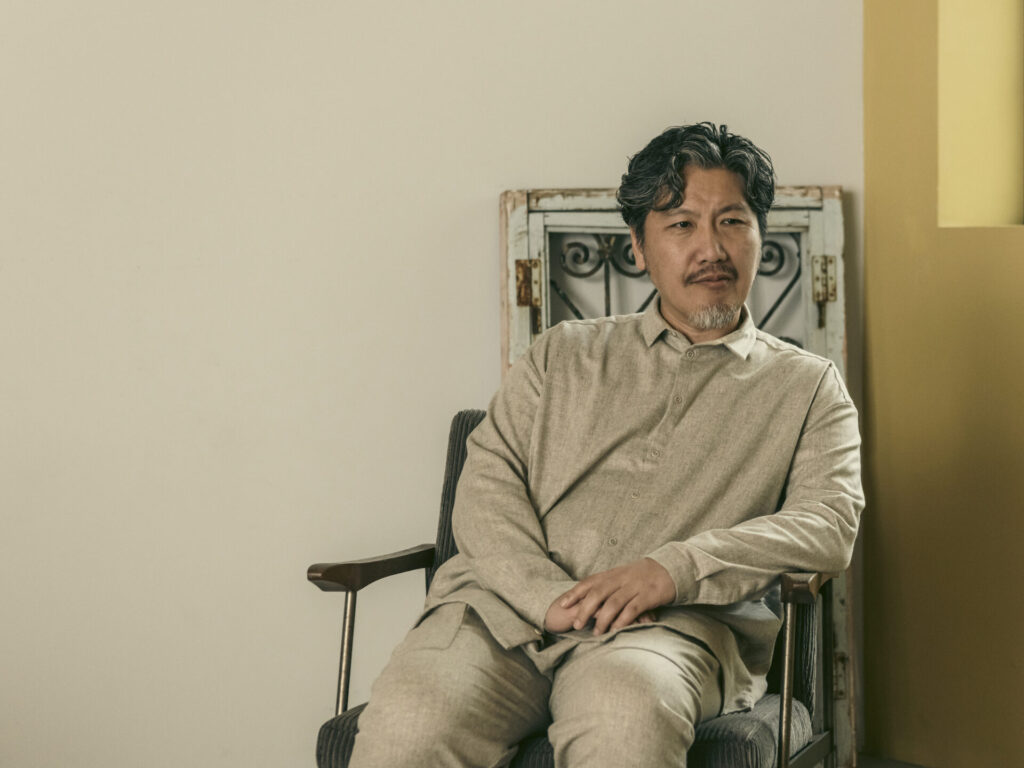
“I look like I enjoy my job because I have put great effort into keeping to enjoy it; I learned the attitude from Ms. Chiharu.” (Shigeta)
——Could you share your views on parenting and “delicacy” based on your child-raising experiences?
Chiharu: My son often tells me I have no “delicacy.”
Shigeta: During our adolescence, if the parents stepped into the children’s world, we thought they didn’t have “delicacy.” Nowadays, however, parents and children are closer to each other, and children don’t mind parents stepping into their world; instead, they often feel relieved by the existence of parents. So, I think it is more difficult to deal with the problem of “delicacy” between parents and children. I want to say to my 16-year-old son that he doesn’t need to show everything so openly since he is at the age when he wants to look cool to his parents.
Chiharu: I once had a period of mental illness when I was in the entertainment business, but I couldn’t tell my situation to the parents because I was scared. I could not tell it not only to my parents but also to the people around me. But it is normal for young people nowadays to say, “I caught a cold in my heart” or “I’m mentally tired.” Actually, I use it sometimes.
——If you are asked if you have “delicacy,” how would you both answer?
Chiharu: I guess “no”.
Shigeta: I would say “yes.” (laughs) But for me, Ms. Chiharu has delicacy, too. You are good at balancing the timing of stepping in and staying. You said earlier that you feel sorry for people who grow up without being told off face to face, and you feel as if you are a cold person; it undoubtedly shows you have delicacy. Somewhere in my heart, not pointing out the problems would be the best choice for both sides, so I often hesitate to step into another person’s space, but you don’t hesitate. The fact that you can step in and clear up the dregs piled up in somebody’s heart proves your delicacy.
To take a detour from the topic, I have recently published two books.
Whenever I work on writing books, I notice you have influenced me a lot on the origin of my thoughts on beauty. When we first worked together on the ad, I asked what beauty meant to you. Your answer was “to forget about what I should and shouldn’t do.” Since the answer was so sensational to me, I could not respond. When you told me the essence of beauty is reducing the karma of what you have to do, I felt the attractiveness of your personality, and I thought I reached the spirit of beauty. To be more, it is fascinating that you enjoy doing it.
Chiharu: Oh, I didn’t know I said such a good thing.
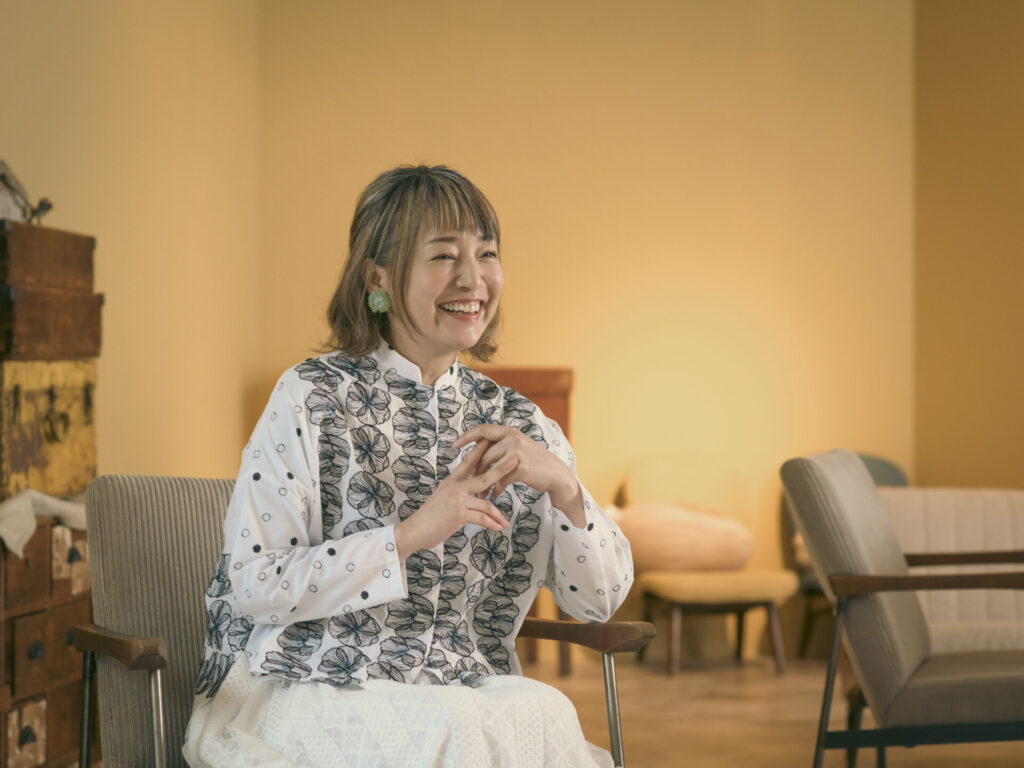
Shigeta: The other day, my daughter said that I look like I work enjoyably, and she wants to get an enjoyable job like mine. I told her the effort necessary to keep enjoying the job was incredible. As a result of the tremendous effort I put into continuing to enjoy my work, I might look like I enjoy working. I told her she might go the wrong way if she didn’t understand it. Actually, I learned such an attitude from you. You sweat blood behind the scenes to enjoy yourself, and since people around you know it, they can accept even harsh comments as comments with delicacy. If someone else uses the exact same words, they might be considered a person without delicacy, or the behavior might be taken as power harassment. But if the comments are based on your way of life, people can accept them as words with love. I feel there are a lot of things like that.
Chiharu: Speaking about whether I have delicacy, a person like Mr. Nagabuchi might appear to have no delicacy. But it is obvious to anyone that he has delicate sensitivity. People’s appearance is often the opposite of their personality, so I would say I have no delicacy to people around me. If you start with a negative impression, you can make it a positive one later. I am a little sarcastic to people I first meet because I don’t want to pretend to be a good person and choose words to be liked from the beginning.
But thinking back, my friends and the people I like all have no delicacy. So, I guess they are not the type of people Mr. Shigeta likes. They say without hesitation, “Hey Shigeta, your opinion?”
Shigeta: I guess they would overwhelm me by asking, “Hey, you, are you gonna do it or not?” (laughs)
Chiharu: But it is like a half-joking. We are pretending as if we have no delicacy. I like such a relationship.
Shigeta: Even though they usually make fun of each other, they have trust that they naturally support each other when the other suffers. Probably, that is why CHUM APARTMENT had an atmosphere like “Chiharu School.” I wondered why such a relationship was maintained between various artists there.
Chiharu: I always thought I had to build a team to make the company bigger, and I was partly trying to rely on artists outside. However, I wanted to focus on more than just art; I tried anything like music or design that could make the company successful. But, I was not good at the type of management to improve the organization by forming teams. Also, I am the type of person who keeps the same distance from everybody, not showing favoritism to one person. As a result, people who reach a certain level graduated from the place after all. And the people who remained were all trashy… sorry, this is an example of why people say I have no delicacy. (laughs)
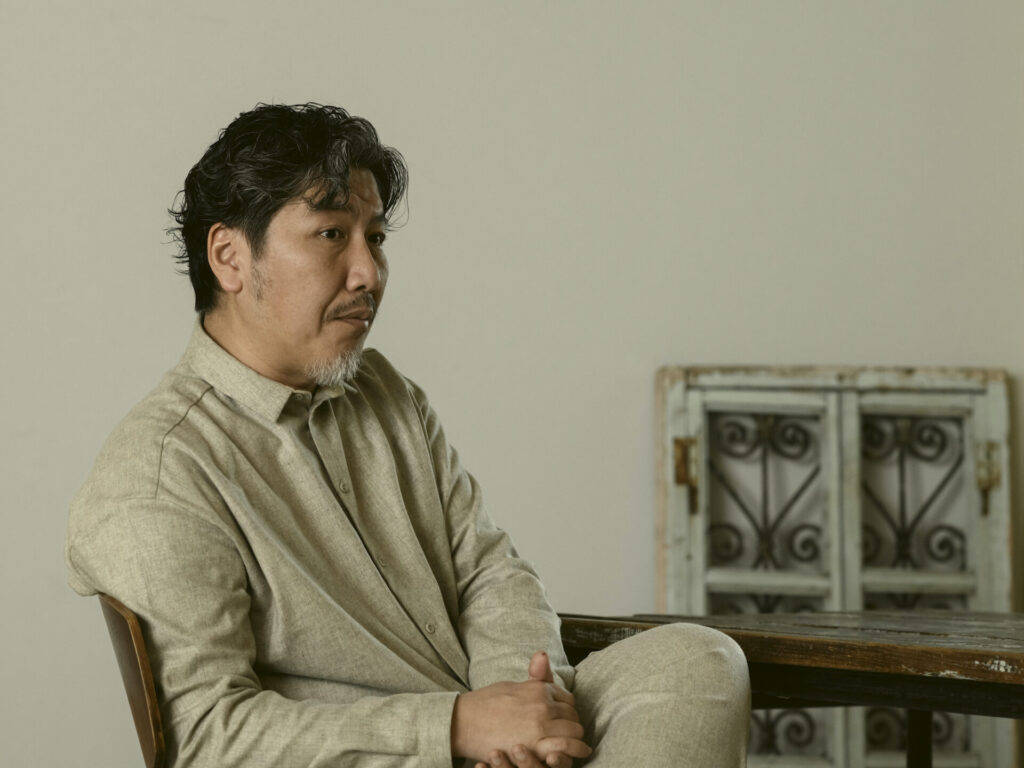
“We could find the aesthetic of independence, not relying on the crowd, in the culture of ‘Urahara’ in the 90s.” (Shigeta)
Shigeta: Recently, I have had many opportunities to travel to Southeast Asia on business. Wherever I go, Korean Culture is very hot, not only in products but also in music and culture. But from the viewpoint of my generation, everything looks like a rehash of Japanese culture in the 1990s. To be honest, Japan was doing something more interesting back then.
Chiharu: That’s really true.
Shigeta: The other day, I had dinner with a Taiwanese businessperson in his 60s. He also mentioned that Korean culture was fascinating now, so I asked him if he knew Japan was doing the same thing in the 90s. He responded that he certainly knew, but he also said that Japan had given up doing it at some point. There are several reasons for this, such as the rise of fast fashion or the deflation of the economy, but one thing is clear: as he pointed out, the Japanese have given up trying to keep doing it.
Chiharu: I suspect that the Japanese culture of “grouping” also had an impact. For example, everything related to dance music leaned toward the style of Mr. Tetsuya Komuro, or in the case of idol groups, the style of Johnnys became the standard. Everything was standardized.
Shigeta: Definitely, the emergence of the “Komuro Family” was a significant turning point in the music industry. The movement brought a certain level of excitement in the industry, but looking back now, I wonder if it was necessary to be a style of “family.”
Chiharu: It was probably the only way to form families and band together to change the status quo in the existing industry back then. However, once a huge family was formed, people started classifying irrelevant artists into specific styles. Even though an artist had nothing to do with a particular “family,” if their style looked a little like someone famous, people thought their style was that of famous people. I think the movement of dance groups stopped because they did not like being treated like that.
Shigeta: The reason I quit music is also related to the story you just mentioned. As a result of the family’s power having become too strong, it became difficult for underground music to survive. It is just like a situation where one tree has grown so big that the sunlight can not reach the areas around it; as a result, you can not see any single weed around the big tree.
Chiharu: Getting too big is a problem. To be honest, we could tell the collapse when the sales were about to reach the peak. In that sense, it would be better to exist independently, not forming a herd, to live longer.
Looking at Korea’s entertainment and culture today, the government is strategically doing something like that, and each of them has a different personality: you can find Seiko Matsuda here and Akina Nakamori there. That is what Japan used to do. Korea is good at preparing different strategies one after another.
Shigeta: I feel the aesthetic of independence, not relying on the crowd, could be seen in the culture of “Urahara” in the 90s. I wonder why such culture has disappeared from Japan.
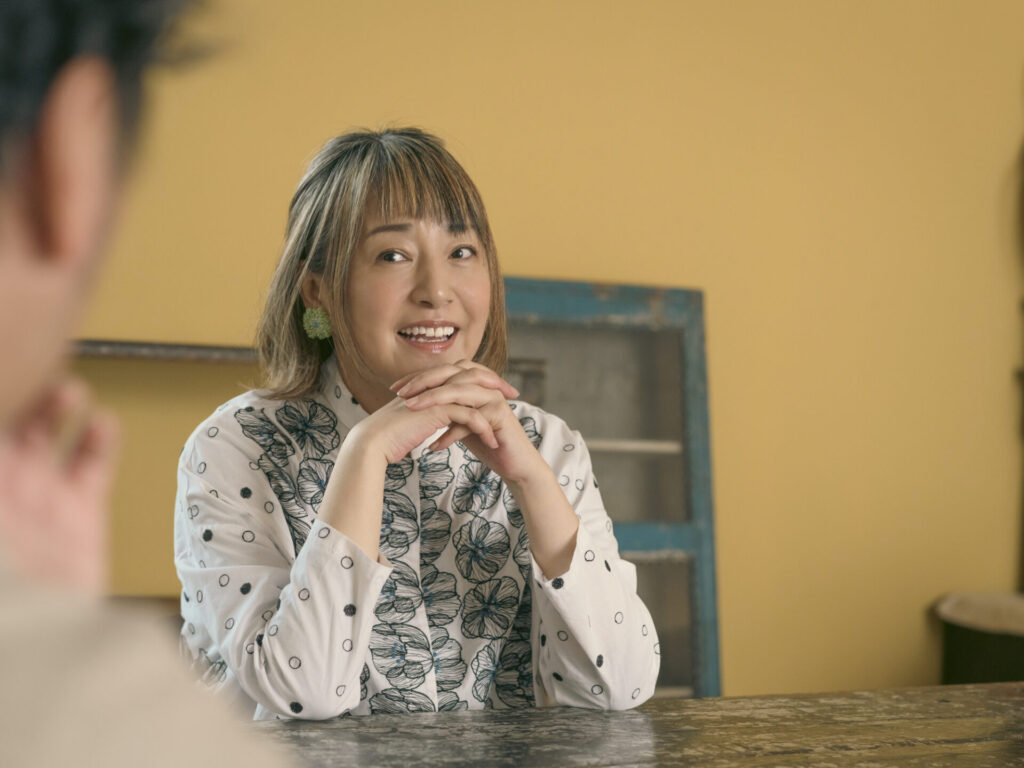
“Although Japanese society is moving in the direction of “whitening,” it is possible for gray things to be bleached but return to gray again.” (Chiharu)
Chiharu: What I also care about is the lack of power among young Japanese girls today. In the old days, we had at least one delinquent girl like me in the class, but we can’t find such girls nowadays. The secret to surviving in current society is to avoid friction with people around you and avoid behavior that will get you criticized.
Shigeta: In the past decade, consciousness toward things like “harassment” and “delicacy” has been emphasized too much, and people have been completely accustomed to suppressing their own emotions.
I believe that moral hazards against the current situation will occur.

Chiharu: Mr. Toshio Okada refers to a sense of value in which “integrity” is the right thing, describing it as the “whitening of society.” I think society is certainly moving in that direction. However, it is possible for gray things to be bleached but return to gray again.
Shigeta: There will always be a backlash.
Chiharu: But I believe it will take some time for the backlash to happen. At least we must wait until all people born in the Showa era are gone. No matter what people in the Showa era say to bring back the old days, I can easily anticipate that young people will react dubiously, saying, “Wait, what are you guys talking about?” I guess we need at least 30 years to bring back the “era without delicacy,” which I like so much.
Shigeta: I expect the current generation in their early to mid-20s to make a change. They must have realized that they can not survive at this rate because society has become too “white.” Although their hourly wages have increased, their working hours have reduced; as a result, their incomes have stayed the same, and they find it challenging to live on their own. On the other hand, sports players like Shohei Otani earn extraordinary amounts of money. In such a situation, it is natural for you to feel the need to change.
Chiharu: I guess you’re right.
Shigeta: People in their late 20s often show interest in what we used to do. When I tell them about things from those days, they say they want to try them because it is new to them.
Chiharu: I have always wanted to see someone interesting who can properly discuss 90s culture. When I went to Shibuya to sell old clothes the other day, the buyer didn’t know who NIGO was. I thought, “Seriously?” and told him, “You know, you can see the word NIGO here, right?” but he was just like, “Huh?” I was extremely shocked to see someone who had no idea about culture appraising old clothes in the middle of Shibuya.
Shigeta: Education about the subculture is very important in that sense.
Chiharu: I think it is.
Shigeta: CHUM APARTMENT was the exact place I learned it. I didn’t embody the culture of the 90s in the center in those days, but CHUM taught me a lot about that time.
Chiharu: Mr.Shigeta, when you talk about the subculture to young people, you don’t need a good look. A person who talks about this sort of topic should have the characteristic appearance that will make people do a double take unconsciously; it’s just right.
Shigeta: After all, you are the only one who says something like that to me. (laughs)
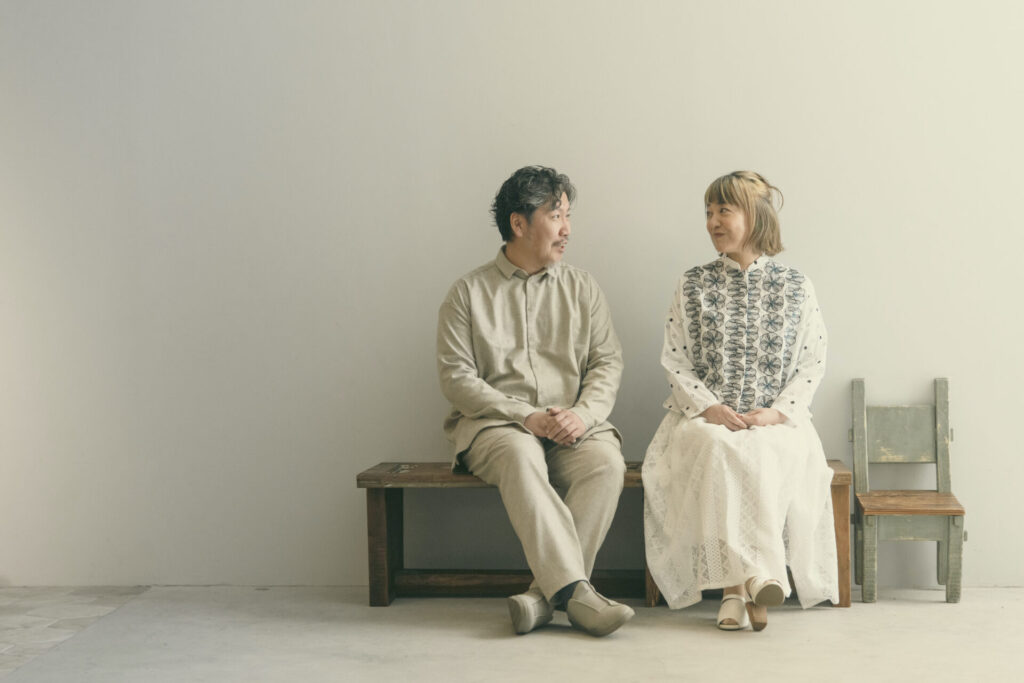
Note:
“The Whitening of Society”
The word “the Whitening of Society” is a term proposed by Toshio Okada, also known as “Otaking,” to describe the society expected to arrive around 2030 (The original term is “the White Society.”) The term refers to a society where “spotless integrity” with no flaw in behavior and opinion is the right thing. It is pointed out that there is a risk that the exclusion of people with individuality and strong characteristics is accelerated and that the pursuit of superficial cleanness might increase the feeling of “suffocation,” such as the difficulty in expressing one’s true feelings.
Profile
-
Chiharu
Born in Ichikawa city, Chiba Prefecture, Chiiharu debuted as a TV personality in 1989 in a commercial for “an,” a job information magazine by Gakusei Engokai. Later, she broke through when she played “Mimo” in Fuji Television’s “Ucchan Nanchan no Yaru nara Yara neba” in 1990. Other representative works include the TBS drama series “Natsukoi” in 2008, where she played the starring role. In addition to their job as a TV personality, she began producing fashion and interior brands. She also opened CHUM APARTMENT, a cafe and dining room, in Aoyama in 2002, which she managed for nearly 20 years. She was also active as a musician from the 1990s to the 2010s. She released her first music, “Jouzu ni Kiku,” in 1992 and has released two singles and three albums.
Publications
loving children (Shufuto Seikatusya)
Boco Deco (Shodensha) -
Masakazu Shigeta
After working as an engineer in the music industry, Shigeta began his career as a cosmetics developer in 2001. Since 2004, he has produced a variety of cosmetics brands in the healthcare business of Nitto Denka Kogyo Co., Ltd., a metal surface treatment company founded by his great-grandfather.
In 2017, he founded Osaji, a skincare lifestyle brand, and became the brand director. He also produced Kako, a specialized shop for home fragrances perfume in Kuramae, Tokyo, in 2021, and a combined shop of Osaji, kako, and a restaurant enso in Kamakura, Kanagawa, in 2022.
In 2023, using Nitto Denka Kogyo’s skills, he produced a pottery brand, HEGE, and he also opened a restaurant serving rice porridge, HENGEN, in Kita-Ueno, Tokyo.
Publications
Taberu Biyou (Eating for Beauty) (SHUFU TO SEIKATSU SHA, 2024)
42-Sai ni Nattara Yameru Biyou, Hajimeru Biyou (Beauty cares to quit and start when you turn 42) (Takarajimasha, 2022)
Information
CHUM APARTMENT
Opened in 2002 in Aoyama, this café and dining room has moved to Meguro and later Musashi Koyama, where it continues business today. In addition to its casual and comfortable atmosphere, CHUM APARTMENT has gained popularity for its authentic Italian cuisine, which uses carefully selected ingredients. Until 2022, Chiharu managed the place, which played a role as a center for new culture by hosting live performances by musicians and exhibitions of creators’ works. The current shop has a cafe and restaurant on the first floor and space for studio and rental use on the second floor, where this interview was held.
-
Photographs:Eisuke Komatsubara
-
Text:Masahiro Kamijo
-
Hair&Make-up:Kei Kokufuda
-
Styling:Yumi Takahashi
-
Cooperation:marble SUD